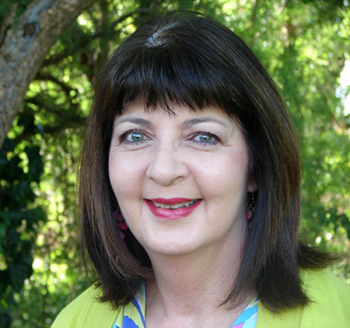Latest News Archive
Please select Category, Year, and then Month to display items
14 June 2024
|
Story Anthony Mthembu
|
Photo Suplied
 Jeremiah Hlahla, a UFS student completing his PhD in Botany at the University of Debrecen as part of an exchange initiative funded by the Erasmus+ Mobility Programme.
Jeremiah Hlahla, a UFS student completing his PhD in Botany at the University of Debrecen as part of an exchange initiative funded by the Erasmus+ Mobility Programme.
As part of an exchange initiative facilitated by the Erasmus+ Mobility Programme, Jeremiah Hlahla, a student at the University of the Free State (UFS), is nearing the completion of his PhD studies at the University of Debrecen in Hungary. Hlahla’s journey, which began in February 2024 and is set to conclude in July 2024, has been a remarkable learning opportunity. “As a first time-traveller to Europe, I have thoroughly enjoyed engaging with people from different countries and cultures,” he said.
The benefits of international collaboration
Hlahla is currently pursuing a PhD in Botany, focusing on plant stress physiology. “My current PhD project investigates the physiological, biochemical and morphological responses of vegetable-type soybean, or edamame, to combined drought and heat stress,’’ he explained. He considers the University of Debrecen the ideal institution to complete his research due to its extensive expertise and resources in similar projects. He noted that his colleagues at Debrecen conduct significant work on plant protection against biotic and abiotic stresses, including salt and drought stress, as well as proteins and amino acids in barley and other legumes.
Given the vast knowledge available on similar projects, Hlahla has found substantial engagement with his work at the University of Debrecen. “Upon arrival, I delivered an introductory lecture presenting my UFS project on the synergistic effects of combined drought and heat stress on the physiology and biochemistry of edamame. It was an engaging session as everyone could relate to my work and asked many questions,’’ he said.
Insights gained from the exchange
Hlahla has also gained valuable lessons that will assist him in his research career, including biotechnology and physiology tools. “I learned how to prepare samples and use high-performance liquid chromatography (HPLC) and reversed-phase ultra-high-performance liquid chromatography (UHPLC) to quantify proteins and amino acids,’’ he said. These techniques are beneficial not only for his current work but will also support future soybean research.
As his experience at the University of Debrecen nears its end, Hlahla reflects on the collaborations and friendships he has formed, which stand out as a significant highlight.
Prof Heidi Hudson appointed to international Committee on the Status of Women
2015-11-24
 Prof Heidi Hudson is looking forward to advancing women scholars globally
Photo: Supplied
|
Prof Heidi Hudson, director of the Centre for Africa Studies at the University of the Free State, was recently appointed by the President of the International Studies Association (ISA) to serve on the Committee on the Status of Women from March 2016 to April 2018.
Representing over 100 countries, ISA has more than 6 500 members in North America and internationally, and is the most respected and widely-known scholarly association in the field of International Studies.
She anticipates that her role on the committee will complement her research interests in feminist security theory and practice in Africa. “I am looking forward to playing a part in the advancement of southern scholars, and the promotion of their voice in global academe.”
Prior to Professor Hudson’s appointment, she served as a member of the executive of the Feminist Theory and Gender Studies (FTGS) Section of ISA.
Representing women of the world in academia
The Committee on the Status of Women has the task of reviewing the status of women in the profession, and making recommendations to the president and the Governing Council of ISA on ways of tracking and increasing the status and visibility of women in the profession.
“Some of the goals of the committee for the 2014 to 2016 period include reaching out to women scholars in the global south; creating an ISA networking website for women scholars; and surveying perceptions of the international relations climate and its needs,” said Prof Hudson. It is also responsible for “tracking gender balance within ISA and its journals, and supporting ISA regions in fulfilling the mission of the Committee on the Status of Women,” she added.
Connecting scholars globally since 1959
The ISA has been the premier organisation for connecting scholars and practitioners in fields of international studies, and promoting research and education. ISA cooperates with 57 international studies organisations in more than 30 countries, is a member of the International Social Science Council, and enjoys non-governmental consultative status at the United Nations.
Prof Hudson’s research interests concentrate on discursive and material gender deficits of liberal peacebuilding in the post colony, amongst other subjects. She is also co-editor of International Feminist Journal of Politics.